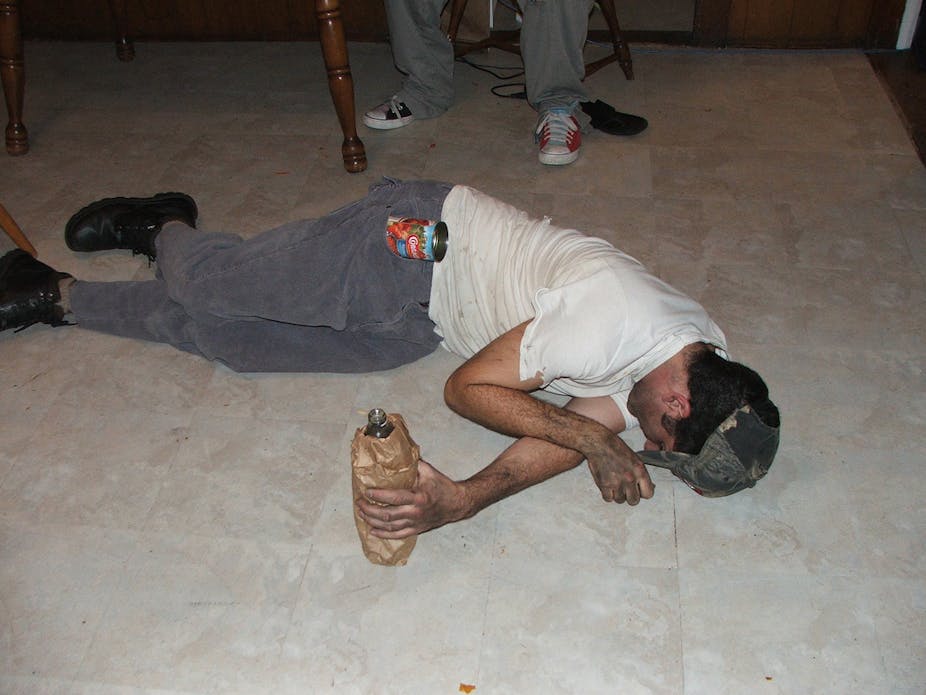Sleeping is normally when our body sticks itself back together. Your breathing and your heart rate slow down, and gradually your body repairs itself, undoing all the damage you’ve done to yourself during the day.
Sometimes we do more damage to our bodies than usual - have a few drinks, come home from the pub, forget how to get the key in the door, and fall into bed. And this, as it turns out, is damage of a different magnitude altogether.
A paper recently published in Alcoholism: Clinical and Experimental Research confirms what we’d previously only suspected: that when you sleep after drinking, the functions of your body designed to repair all the damage you did to it while you were awake aren’t anywhere near as active.
What’s more, the more you drink, the worse the problem gets.
Participants in this study received either no drinks at all, a few drinks, or what might be described as a “heroic” dose – around an entire bottle of wine. (I’m sure they had no difficulties getting people to sign up for their research.)
There was a clear pattern at the end – some drinking is worse than none, and drinking a lot is definitely worse than drinking some.
Interestingly, participants in all groups slept for more or less the same amount of time, moved around as much while they were asleep, and woke up an equal number of times. Although, not surprisingly, the drinking groups fell asleep marginally faster.
Overall, it seems it’s mainly the quality of sleep that’s affected. Two things in particular changed in the heavy-drinking group – the amount of rapid-eye movement (REM) sleep and the amount of parasympathetic nervous system (PNS) activity.
Neither of these are things you want to do without. REM sleep is still something of a mystery to researchers – while we know what it is (a stage that occurs both early and late in a night’s sleep, with certain brain patterns), we’re less clear on what it does exactly.
Although we’re somewhat sure it has a definite role in memory consolidation and enhancing creativity overnight.
The parasympathetic nervous system is responsible for the regulation of all the internal organs of the body – the mnemonics that we use is the “rest and digest” functions.
Typically, calm, healthy, socially-engaged people have active parasympathetic systems at rest, and stressed, anxious and tense people have inactive parasympathetic systems.
What this study adds to is further evidence that drinking alcohol is a pretty bad sleep aid – if you drink to go to sleep, you may go to sleep sooner but the sleep you have becomes proportionally less effective.
Sleep quality is already a big issue in the 21st century – between shift and casual work, 24-hour culture, sleep apnea, and a society bathed in noise and artificial light, we’re already getting less sleep than our ancestors, and the sleep we do get is of worse quality.
The last thing we need is something ruining what little sleep we do manage to get.
So, what does all this mean? As usual, it’s hard to say immediately. But one possibility that presents itself is that this process is part of what we might call a “cycle of decline”.
There’s plenty of research to indicate that heavy drinkers already have a chronically depressed parasympathetic system during the day. Drinking before going to sleep might make this a lot worse by depriving the body of the opportunity to recover overnight as well.
So what happens when you wake up, feeling like you haven’t slept at all? How do you make yourself feel better? You guessed it - you end the day with more drinking. And so continues the cycle of decline.
So next time you wake up at home, with a splitting headache and not remembering how you got there, remember that while you may have rested, your body hasn’t.

